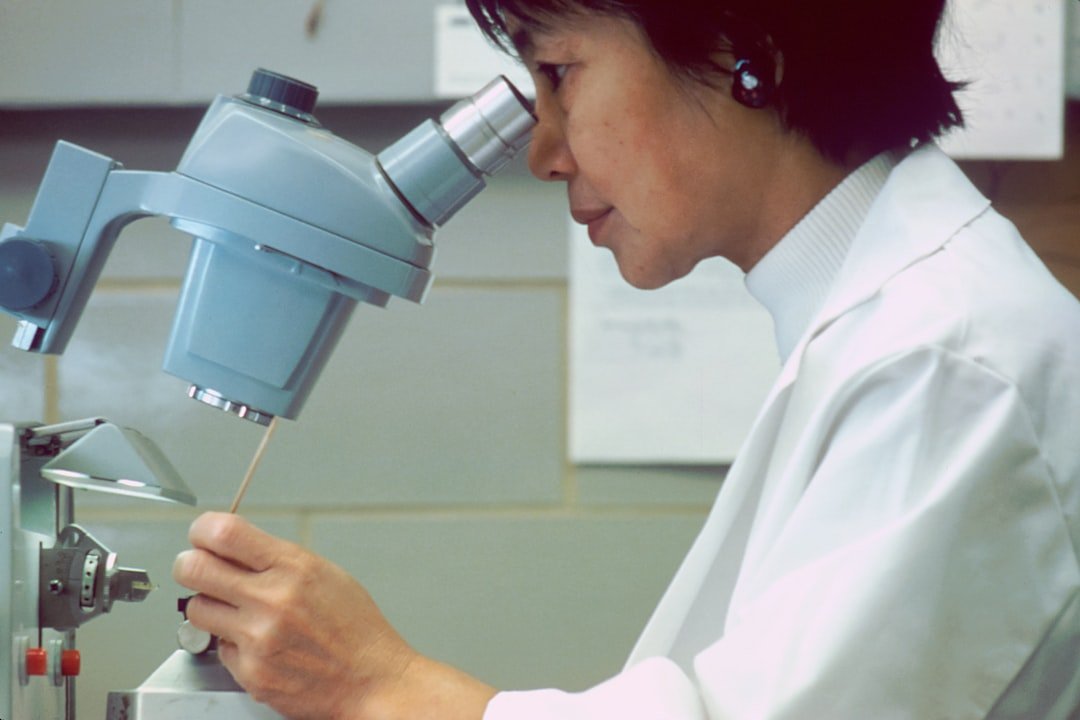Starting a Lab Testing Business: Essential Steps

If you love science and want to help different industries out, starting a lab testing business can be a very profitable endeavor. To ensure success, though, extensive planning and research are necessary, just like in any business. In this post, we’ll go over the essential procedures for launching a lab testing company and offer helpful advice to get you through it. To find possible opportunities, market research must be done before entering the field of lab testing. You can learn more about the market for lab testing services, your target market, and any gaps in the market that you can close by conducting market research.
Key Takeaways
- Conduct thorough market research to identify opportunities in the lab testing industry
- Develop a comprehensive business plan that outlines your goals and strategies
- Secure funding through loans, investors, or grants to start your lab testing business
- Choose a location that is easily accessible and meets the needs of your business
- Obtain all necessary licenses and permits to operate legally and safely
There are several ways to carry out market research, including focus groups, interviews, and surveys. These techniques will assist you in obtaining useful information regarding the requirements and preferences of possible clients. You can find out what kinds of lab tests companies need by, for instance, conducting surveys of companies in the pharmaceutical, environmental, and healthcare sectors. Also, you can investigate possible prospects in developing domains like water quality testing, food safety testing, and genetic testing. These sectors are expanding quickly and offer fantastic chances for a lab testing company.
Creating a thorough business plan is crucial after you have located possible opportunities in the lab testing sector. A business plan aids in outlining your objectives, tactics, and financial projections while acting as a guide for your enterprise. A market analysis that shows your comprehension of the lab testing sector and your target market is an essential component of a well-written business plan. Together with your pricing structure, it should include an outline of your marketing and sales strategies. You should also include financial projections in your business plan that outline your anticipated income, costs, & profitability. Performing in-depth research & compiling precise data are essential to writing a winning business plan.
This will support your decision-making and help you make a strong case to lenders or investors. For a lab testing business to get off the ground, obtaining sufficient funding is essential. Depending on how big your business is, you might need money to pay for staff hiring, facility leasing, equipment purchases, & other operating costs. Lab testing companies have access to a variety of funding sources.
| Essential Steps | Description |
|---|---|
| Market Research | Conducting research to identify the demand for lab testing services in the target market. |
| Business Plan | Creating a comprehensive business plan that outlines the company’s goals, strategies, and financial projections. |
| Legal Requirements | Obtaining necessary licenses and permits, registering the business, and complying with regulations. |
| Location | Selecting a suitable location for the lab that is easily accessible and meets the necessary requirements. |
| Equipment and Supplies | Acquiring the necessary equipment and supplies for the lab, including testing equipment, chemicals, and safety gear. |
| Staffing | Hiring qualified staff, including lab technicians, administrative personnel, and management. |
| Marketing and Advertising | Developing a marketing and advertising strategy to promote the lab testing services to potential customers. |
| Quality Control | Implementing quality control measures to ensure accurate and reliable test results. |
| Financial Management | Managing the finances of the lab, including budgeting, accounting, and cash flow management. |
One may choose to investigate conventional choices like bank loans or pursue grants & funding schemes tailored especially for small enterprises operating in the science and technology domains. For prospective lenders or investors, it is crucial to have a strong business plan with financial projections. Your lab testing business’s success depends on where you choose to locate it.
Positioned in close proximity to competitors & potential clients, the location should be easily accessible to your target audience. When choosing a site, keep things like the cost of real estate, the accessibility of trained labor, and the infrastructure for transportation in mind. Make sure your chosen location is appropriate for a lab testing facility and do your homework on local zoning laws. Making the incorrect location decision can have serious repercussions for your company.
It could lead to trouble hiring competent employees, higher transportation expenses, or restricted access to consumers. As such, spend some time carefully assessing potential locations and select the one that best fits your company’s objectives. Getting the required licenses and permits is an essential first step in launching a laboratory testing company. In order to guarantee the legitimacy and legality of your business, adherence to local, state, and federal regulations is crucial. Depending on your industry and the type of lab testing you do, different licenses and permits may be needed.
In order to guarantee compliance, it is crucial to study the laws governing your area & engage with a lawyer or consultant who focuses on the lab testing sector. A few typical licenses and permits that you might require are business licenses, environmental permits, and accreditation for laboratories. As you show your dedication to quality and compliance by obtaining the required licenses & permits, you can gain your customers’ trust. Purchasing top-notch tools and materials is crucial to the success of your laboratory testing enterprise. The caliber of the equipment you use determines the precision and dependability of your test results. Think about the particular requirements of your company as well as the services you intend to provide when selecting equipment.
To make sure that your choices are well-informed, investigate various brands and models, read reviews, and speak with professionals in the field. When buying equipment, it’s crucial to take into account elements like the need for maintenance, the warranty, and technical assistance. Using subpar tools and materials can have detrimental effects on your company. It may result in erroneous test results, service delivery delays, and reputational harm. Therefore, to guarantee the dependability and precision of your lab testing services, make an investment in top-notch machinery and supplies from recognized vendors.
Hiring competent employees is essential to your lab testing business’s success. Delivering precise & trustworthy test results is largely dependent on your workforce, who form the core of your business. It’s crucial to perform in-depth interviews and background checks on potential employees before hiring them to make sure they have the training and expertise needed. Seek for people who have certifications or degrees in related fields, such as medical laboratory science, biology, or chemistry.
Take into account their technical proficiency, meticulous nature, and capacity for working in a high-pressure setting. Your company may suffer greatly if you hire workers who lack the necessary qualifications. It may result in inaccurate test findings, weakened quality assurance, & even legal problems. Consequently, invest the necessary time in identifying and employing capable people who are devoted to maintaining the greatest levels of precision and quality in their work.
Maintaining the accuracy and dependability of your lab testing services depends on the establishment of efficient quality control procedures. The proper calibration of your equipment, the training of your personnel, and the standardization of your processes are all guaranteed by quality control. To guarantee accurate test results, equipment maintenance must be performed on a regular basis. Create a schedule for your equipment’s regular maintenance and calibration, & maintain thorough records of all these tasks.
Also, make sure your employees have access to continual training and opportunities for professional growth to keep them abreast of the most recent industry standards and best practices. Adopting quality control procedures gives your customers confidence and guarantees the accuracy of your test results. In the industry, it can help you establish a solid reputation by demonstrating your dedication to offering dependable and trustworthy lab testing services. Any business, including one that does lab testing, must prioritize marketing if it hopes to succeed. You can reach potential consumers, increase brand awareness, and set yourself apart from competitors with the aid of effective marketing strategies. Build a credible online presence for your lab testing company by using social media and a well-designed website.
Provide case studies, testimonials, & educational content to establish your credibility and demonstrate your expertise. Participate in trade exhibits, join professional associations, and attend industry conferences to expand your network of possible clients. You may build your lab testing company’s reputation as a reliable supplier of top-notch services by using effective marketing to draw in new clients and keep hold of current ones. Thus, dedicate time and funds to creating a thorough marketing plan that supports your company’s objectives. Conclusion: Careful planning, investigation, and attention to detail are necessary when launching a laboratory testing company.
You can position yourself for success in the lab testing industry by carrying out market research, creating a thorough business plan, obtaining sufficient funding, picking the ideal location, obtaining the required licenses and permits, buying premium supplies and equipment, employing qualified personnel, putting in place quality control measures, & putting successful marketing strategies into practice. Recall that the secret to launching a profitable lab testing company is careful planning & research.
If you’re interested in starting a lab testing business, you’ll definitely want to check out this informative article on howtostart.digital. They have a comprehensive guide that covers everything you need to know about launching your own lab testing venture. From understanding the market and identifying your target audience to setting up the necessary equipment and obtaining the required certifications, this article has got you covered. Don’t miss out on this valuable resource – click here to read the article and get started on your lab testing business journey: https://howtostart.digital/hello-world/.
FAQs
What is a lab testing business?
A lab testing business is a company that provides laboratory testing services to individuals, healthcare providers, and other businesses.
What are the benefits of starting a lab testing business?
Starting a lab testing business can be a lucrative venture, as there is a growing demand for laboratory testing services. Additionally, it can provide a valuable service to the community by helping to diagnose and treat illnesses.
What are the requirements for starting a lab testing business?
The requirements for starting a lab testing business vary depending on the location and type of testing being offered. Generally, a lab testing business will need to obtain the necessary licenses and certifications, have qualified staff, and have the appropriate equipment and facilities.
What types of lab testing can be offered by a lab testing business?
A lab testing business can offer a wide range of testing services, including blood tests, urine tests, genetic testing, drug testing, and more.
How can a lab testing business attract customers?
A lab testing business can attract customers through marketing and advertising efforts, as well as by providing high-quality testing services and excellent customer service.
What are some common challenges faced by lab testing businesses?
Some common challenges faced by lab testing businesses include regulatory compliance, competition from other testing providers, and managing costs associated with equipment and staffing.




